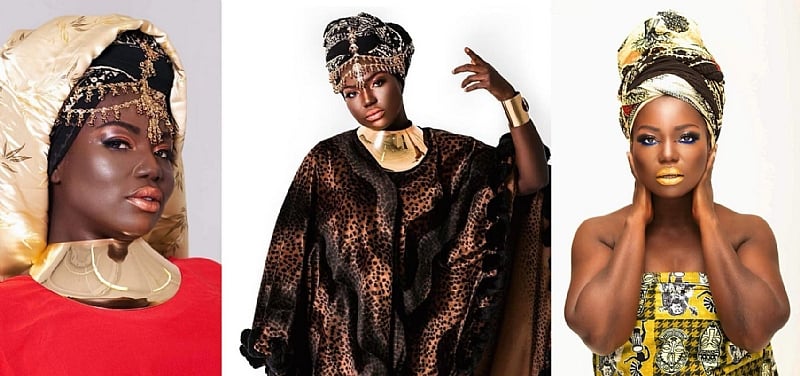Ghana boasts a wealth of creative talent across diverse fields, including music, film, fashion, and sports, consistently producing internationally acclaimed stars. However, the potential of many talented individuals remains untapped due to a lack of adequate support. This is the perspective of Empress Ghadafi, a prominent figure in Ghana’s entertainment industry. She emphasizes the need for concerted efforts from industry stakeholders to propel Ghana’s creative industry forward, enabling emerging artists to achieve mainstream success. Financial backing, media exposure, professional management, and government intervention are crucial components of this much-needed support system, which would empower young creatives to overcome existing obstacles and achieve their full potential.
Ghana’s reputation as a creative powerhouse is well-established, evidenced by the international recognition of artists like Sarkodie, Stonebwoy, Shatta Wale, Black Sherif, Jackie Appiah, and Majid Michel. However, for each success story, numerous equally talented individuals struggle for recognition, hindered by systemic challenges within the industry. While digital platforms offer independent artists avenues for showcasing their work, Empress Ghadafi argues that without substantial industry backing, many promising talents remain marginalized. To rectify this, she advocates for a collaborative industry effort to establish a structured framework that supports, promotes, and nurtures young creatives, ensuring they receive the recognition and opportunities they deserve.
Breaking into Ghana’s entertainment scene presents significant hurdles for emerging talents, often preventing them from realizing their aspirations. These obstacles encompass a lack of financial support, limiting access to quality studios, music videos, and promotional campaigns. Limited exposure and platforms further exacerbate the challenge, with mainstream media often prioritizing established acts, leaving emerging artists struggling for visibility. The absence of professional management and promotion deprives talented individuals of guidance, strategic career development, and effective branding, further hindering their progress. Industry gatekeeping and favoritism also create barriers, limiting access to major platforms and opportunities for independent artists. Finally, the lack of a robust royalty system deprives creatives of fair compensation, discouraging many from pursuing careers in the entertainment industry.
Empress Ghadafi proposes several key strategies to transform Ghana’s entertainment landscape and empower emerging talent. She calls for increased investment in talent development, urging record labels and sponsors to actively identify and support emerging artists by funding projects and providing essential resources. Increased media opportunities are vital, with radio and television stations dedicating airtime to showcasing the work of emerging artists, alongside digital platforms playing a crucial role in promoting their work. Event organizers are encouraged to prioritize local talent over foreign acts, providing valuable exposure and building the local fan base. Government intervention is essential, through policies that support the creative industry, including funding programs, training workshops, and robust copyright laws to protect artists’ earnings. Finally, strengthening Ghana’s creative ecosystem through collaboration among artists, producers, managers, and media professionals would foster a more supportive environment where mutual support replaces unhealthy competition.
The recent success of artists like Black Sherif, gaining international recognition, and Gyakie, securing global collaborations, demonstrates the global potential of Ghanaian talent. Empress Ghadafi’s call for increased industry support serves as a critical reminder that talent alone is insufficient. Strategic investment, industry backing, and a collective effort to nurture young creatives are essential for unlocking their full potential. By embracing Empress Ghadafi’s vision, Ghana can pave the way for a new wave of artists and entertainers, impacting both local and international audiences, solidifying its position as a premier entertainment hub in Africa and beyond. The future is bright, but realizing this potential requires immediate action.
The entertainment industry must prioritize creating an environment where talent is not only recognized but also nurtured and provided with the necessary resources and platforms to flourish. This collaborative effort will ensure that the immense creative potential within Ghana is fully realized, contributing significantly to the country’s economic growth and cultural influence. The time for decisive action to support Ghanaian talent is now.


